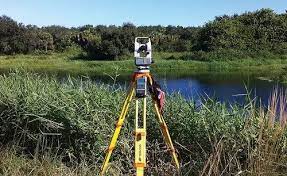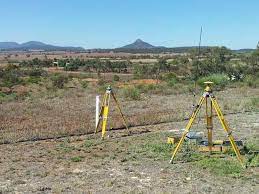Understanding the cost of land transfer in Kenya is crucial for anyone buying or selling property. This guide explains the land transfer fees, title transfer process, and land registry charges to help you estimate the total cost and avoid costly mistakes.
Introduction
The cost of land transfer in Kenya can vary depending on the property’s location, value, and type of ownership. Whether you’re buying urban land or rural plots, understanding the required fees and steps will help you plan financially and ensure a smooth process. This guide breaks down the fees, legal procedures, and registry requirements to help you complete a successful land transfer.

Understanding Land Transfer in Kenya
Transferring land in Kenya involves changing ownership from the seller to the buyer, a process managed by the Ministry of Lands and Physical Planning. It requires specific documentation, payments, and approvals to make the transfer legally binding.
What a Land Transfer Means
A land transfer is the legal process that officially changes property ownership in government records. It includes verifying ownership, paying taxes, and registering the new title deed under the buyer’s name. This process ensures both parties are protected under the law.
Importance of the Land Registry
The Land Registry is responsible for maintaining records of property ownership. During a transfer, the registry verifies existing ownership, records the new details, and issues a fresh title deed. It’s vital to ensure all documents are accurate to prevent ownership disputes later.
Common Reasons for Land Transfers
Land transfers often occur due to property sales, inheritance, gifts, or corporate restructuring. Each type of transfer might require different forms and supporting documents, but all must follow legal registration protocols to be valid.

Key Components of Land Transfer Costs in Kenya
The total cost of land transfer in Kenya depends on various fees and charges. Buyers and sellers should be aware of these costs to budget properly and avoid hidden expenses.
Stamp Duty Fees
Stamp duty is one of the largest land transfer costs. It is a tax paid to the government based on the property’s market value—typically 2% for rural land and 4% for urban land. The Kenya Revenue Authority (KRA) assesses the property value before the payment is made.
Legal and Advocate Fees
Most land transfers in Kenya are handled through licensed advocates. Legal fees are regulated by the Advocates (Remuneration) Order, usually ranging from 1% to 2% of the property value. These fees cover document preparation, due diligence, and filing.
Land Registry and Administrative Charges
Additional registry charges include search fees, registration fees, and issuance of title deeds. While they might seem minor individually, they add up—usually totalling a few thousand shillings.
Step-by-Step Title Transfer Process in Kenya
The title transfer process in Kenya is detailed and must be followed carefully to ensure full compliance with land laws.
Conducting an Official Land Search
Before initiating a transfer, a land search should be done at the Land Registry or through the ArdhiSasa portal. It confirms the registered owner, land size, and any encumbrances such as caveats or charges.
Preparation and Signing of Sale Agreement
Once the land search confirms ownership, the buyer and seller sign a sale agreement drafted by a lawyer. This agreement outlines the terms, sale price, and obligations of each party.
Payment and Transfer Registration
After paying the agreed amount, the buyer provides proof of payment, and the lawyer initiates transfer registration at the Lands Office. The new owner receives a title deed within weeks once all fees are cleared.
Land Registry Charges and Valuation Procedures
Land registry charges and valuation assessments form a core part of the land transfer process.
Government Valuation Process
KRA’s valuation department reviews the sale price against market standards to determine the correct stamp duty. This step helps prevent undervaluation and ensures fair taxation.
Common Land Registry Fees
Registry fees may include charges for land search (KSh 500), registration (KSh 5,000–10,000), and deed printing. Each county may have slightly different rates depending on location and property type.
Importance of Proper Valuation
An accurate valuation guarantees a fair deal for both the buyer and seller. It also prevents overpayment in taxes and helps with future resale or development planning.

Common Challenges in the Land Transfer Process
Despite clear procedures, buyers often face challenges when transferring land in Kenya.
Delays at the Lands Office
Bureaucratic delays, missing records, and verification bottlenecks can slow down the process. It’s best to engage an experienced lawyer who can navigate the system efficiently.
Disputes Over Ownership
In some cases, fake title deeds or fraudulent sales can occur. Conducting thorough searches and verifying with the Ministry of Lands is crucial before payment.
Incomplete Documentation
Missing signatures, outdated IDs, or unpaid land rates can invalidate a transfer. Always double-check every document before submission to avoid rejection.
Tips to Reduce Land Transfer Costs in Kenya
There are several ways to minimise expenses during the land transfer process while staying compliant with Kenyan law.
Use the ArdhiSasa Online Platform
The ArdhiSasa system helps streamline applications and payments, cutting down travel and intermediary costs. It also makes the process more transparent and trackable.
Negotiate Legal Fees
Buyers can negotiate advocate fees within the limits of the remuneration order. Bundling legal services for land search, agreement drafting, and transfer registration can reduce total costs.
Plan Early for Stamp Duty
Setting aside money early for stamp duty ensures you don’t face delays during payment verification. It also prevents penalties for late submissions.
How Long a Land Transfer Takes in Kenya
The title transfer process in Kenya can take anywhere between 30 and 90 days, depending on document readiness and the efficiency of the involved offices.
Factors Affecting Transfer Duration
The accuracy of documentation, KRA valuation timelines, and workload at the Lands Office affect how long the process takes. Engaging professionals can shorten this duration.

Accelerating the Process
Using digital platforms and paying all fees promptly helps fast-track registration. Following up regularly with your lawyer or registry officers also ensures minimal delay.
When Delays Are Unavoidable
Sometimes, disputes or policy changes can extend timelines. Staying patient and keeping proper communication with authorities helps prevent misunderstandings.
Understanding Land Transfer Taxes in Kenya
Taxes are among the most important cost elements during land transfer in Kenya. Buyers and sellers must comply with various tax obligations before the transfer is approved. Knowing what to expect helps avoid unnecessary penalties and delays caused by unpaid taxes.
Capital Gains Tax (CGT)
Capital Gains Tax is a charge applied to the profit made by the seller from a land transaction. It is currently 5% of the gain, and it must be paid before the transfer can be completed. The Kenya Revenue Authority ensures that the seller has cleared this tax before issuing the land transfer clearance. Many property sellers underestimate this cost, leading to transfer delays. Having your tax computation done early avoids last-minute surprises. Always work closely with your lawyer or accountant to ensure the correct amount is remitted to KRA.
Withholding Tax on Property Transactions
For corporate sellers or non-residents, withholding tax may also apply. This tax ensures that a portion of the proceeds from the sale is collected upfront by the buyer and remitted to the government. It acts as a form of income tax compliance. The buyer must issue a certificate of withholding to prove that the tax has been deducted and submitted. Failure to comply can cause complications at the Lands Office. Buyers should always confirm these details before finalising the purchase.
Land Rates and Rent Clearance
Before land can be transferred, the local county government requires that land rates and rent be fully paid. These charges accumulate annually, and clearance certificates must be presented at the registry. Many transfers are delayed because sellers neglect to clear these balances early. Counties like Nairobi, Mombasa, and Kiambu have online portals to simplify payments and obtain digital clearance certificates. Keeping these records updated not only eases transfer but also preserves the property’s legal standing.
Role of Lawyers and Surveyors in Land Transfer
Land transactions in Kenya often involve multiple professionals to ensure accuracy, transparency, and legal compliance. Lawyers and surveyors play distinct but complementary roles in making the process successful.
Duties of a Conveyancing Lawyer
A conveyancing lawyer handles all legal documentation and correspondence with government offices. They draft the sale agreement, verify ownership documents, and file transfer paperwork at the registry. Their expertise ensures that both buyer and seller are protected under the law. Additionally, lawyers help calculate correct taxes, prevent fraud, and ensure smooth title registration. Although their fees increase the total cost of land transfer, their input is vital to safeguard your investment. A qualified lawyer reduces risks of disputes and fraudulent transactions significantly.
Importance of Licensed Surveyors
Surveyors confirm the property boundaries and ensure that the land being transferred matches the title deed description. They also prepare mutation forms for subdivisions or boundary adjustments. Without a surveyor’s confirmation, a buyer risks acquiring land that overlaps with another parcel. Their services are particularly important in areas with frequent land disputes. Accurate surveys prevent encroachments and future conflicts with neighbors. Engaging a licensed surveyor ensures your title reflects the correct plot boundaries and acreage.
Digitalisation of the Land Transfer Process in Kenya
The Kenyan government has invested heavily in digitising land services to eliminate corruption and improve efficiency. Platforms like ArdhiSasa now make it possible to conduct searches, pay fees, and initiate transfers online.
The ArdhiSasa Platform Explained
ArdhiSasa is a digital platform developed by the Ministry of Lands that centralises land records and transactions. It allows users to perform land searches, lodge transfer applications, and pay stamp duty electronically. This innovation has drastically reduced the need for manual paperwork and minimised opportunities for fraud. Users can also track their application status in real time. While the rollout is ongoing, Nairobi and several counties already operate fully on the platform. The system enhances transparency and shortens transfer timelines.
Benefits of E-Government in Land Administration
Digital transformation has improved service delivery and accountability in Kenya’s land sector. It reduces processing time, enhances record accuracy, and ensures easy retrieval of historical ownership data. Users can also interact with Lands Office personnel through secure online channels. With continued upgrades, digital systems are expected to cover all 47 counties. This shift saves time, reduces travel expenses, and minimises document loss or forgery. It’s a major step toward a modern and corruption-free land registry.
Challenges of the Digital Transition
Despite the progress, the transition to digital systems faces obstacles like slow internet connectivity and limited public awareness. Some users, especially in rural areas, struggle with online registration or uploading required documents. Technical glitches occasionally cause application delays. However, the Ministry continues to provide user training and support desks to assist citizens. With continued improvement, the digital system will become more reliable and user-friendly. Adapting to these systems is vital for anyone involved in future land transactions.
Financing and Payment Options for Land Purchase in Kenya
Land buyers often rely on different financing options, and understanding these helps manage costs effectively during transfer. Whether paying in cash or through financing, careful planning ensures smooth completion.
Cash Purchases and Direct Payments
Cash purchases are the most straightforward option since they avoid interest and lengthy approval processes. Once both parties agree on the sale price, the buyer transfers payment directly to the seller, often through a lawyer’s client account for safety. This method ensures quick transaction closure and minimal paperwork. However, it also requires full upfront payment, which can be challenging for some buyers. Ensuring the payment trail is documented protects both sides from fraud. Always avoid cash handovers and insist on bank transfers for accountability.
Mortgage and Bank Financing
Many Kenyan buyers opt for mortgage loans or asset financing from banks to fund land purchases. Lenders assess the property’s value and borrower’s creditworthiness before approval. The bank pays the seller directly and retains the title deed as security until the loan is cleared. Although this method increases transfer time, it provides flexibility for buyers who can’t pay in full. Interest rates and processing fees add to the overall cost, but they spread payments over several years. Buyers should compare lenders to find favorable terms before committing.
Payment Plans Through Real Estate Developers
Some property developers offer installment plans, allowing buyers to pay over several months or years. These arrangements are ideal for buyers purchasing land in gated communities or upcoming estates. The developer retains the title until payment completion. It’s important to review the agreement carefully to confirm there are no hidden charges or inflated interest rates. Always ensure that the developer has legitimate ownership documents before making payments. Well-structured payment plans make land ownership more accessible to middle-income Kenyans.
Mistakes to Avoid During Land Transfer in Kenya
Even small oversights can lead to significant financial losses or legal problems during a land transfer. Knowing what to avoid helps ensure your transaction is clean, legal, and successful.
Skipping Due Diligence
Failing to perform due diligence is a major mistake in land transactions. Always conduct a comprehensive land search to verify ownership, boundaries, and encumbrances. Buyers should visit the property physically to confirm its location and condition. Fraudsters often present fake documents or sell land they don’t own. Engaging a lawyer and surveyor minimises this risk. Spending time on verification can save you from losing your investment later.
Ignoring Legal Representation
Some buyers try to cut costs by avoiding lawyer involvement. However, lawyers protect your interests, ensure compliance, and verify that all documents are legally binding. Without legal guidance, you may sign fraudulent or incomplete contracts. Lawyers also help negotiate fair terms and ensure payments are made securely. The small legal fee is worth the security it provides. Always insist on professional legal representation throughout the process.
Incomplete or Incorrect Documentation
Incomplete paperwork is another common cause of transfer rejection. Errors in names, plot numbers, or missing signatures can invalidate your submission. Before lodging your application, double-check every page for accuracy. It’s also crucial to attach receipts for all paid fees and taxes. The Lands Office is strict on documentation accuracy. Proper preparation saves time and prevents costly rejections.
Conclusion
The cost of land transfer in Kenya depends on factors such as stamp duty, legal fees, and registry charges. Understanding these costs in advance helps both buyers and sellers plan efficiently and complete transactions smoothly. By following legal steps, verifying documents, and using platforms like ArdhiSasa, you can ensure a safe and transparent transfer. Always consult a licensed advocate to guide you through every stage for peace of mind.



